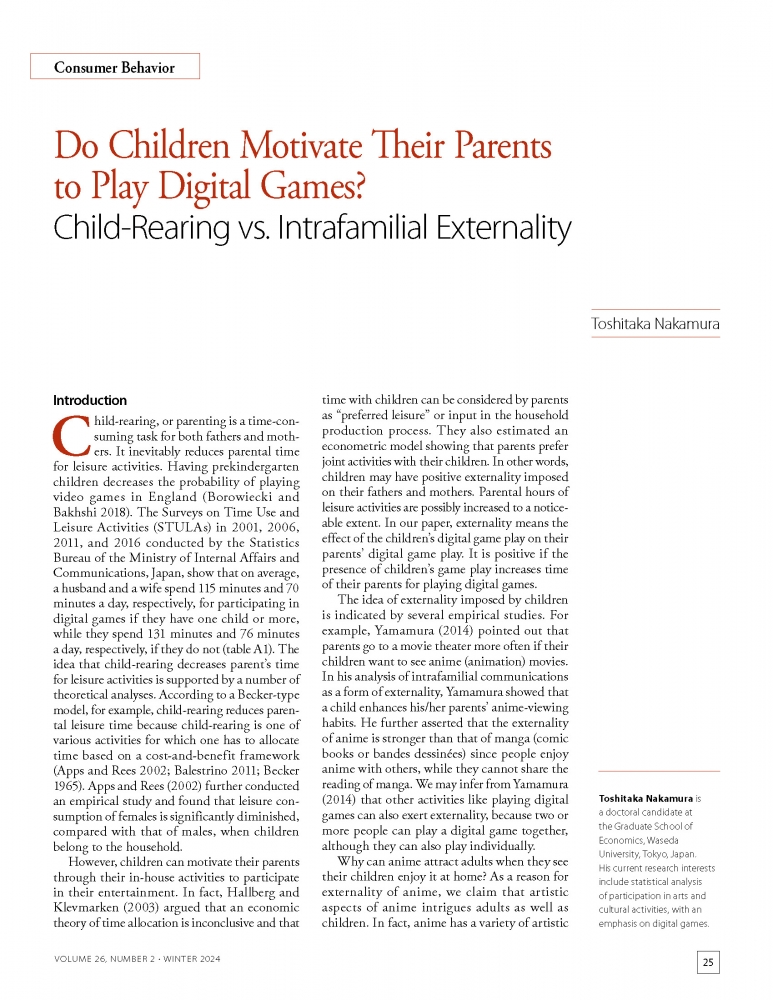Do Children Motivate Their Parents to Play Digital Games? Child-Rearing vs. Intrafamilial Externality
Produit: Article
21,00 $ CA
(en anglais seulement)
Toshitaka Nakamura
Toshitaka Nakamura is a doctoral candidate at the Graduate School of Economics, Waseda University, Tokyo, Japan. His current research interests include statistical analysis of participation in arts and cultural activities, with an emphasis on digital games.
ABSTRACT
Bringing up children is time-consuming and is generally believed to reduce parental time for leisure activities such as digital game play. However, through their activities, children can motivate their parents to participate in the same activities. We use a Japanese microdata set and estimate the mixed effects separately in digital game play by the zero-inflated ordered probit (ZIOP) model to show that having children is positively correlated with fathers’ participation in digital games, whereas it is negatively associated with their mothers’ time for playing such games. We discuss why fathers and mothers are differently affected by their children in digital game play. Differences in the expectations of fathers and mothers in Japanese society are a major cause of the gender gap in the participation of parents. We emphasize that incorporating the difference between fatherhood and motherhood into a statistical model is crucial in analyzing children’s effects on other family members.
KEYWORDS
Cultural Participation; Digital Game; Zero-Inflated Ordered Probit Model; Microdata; Japanese General Social Surveys
